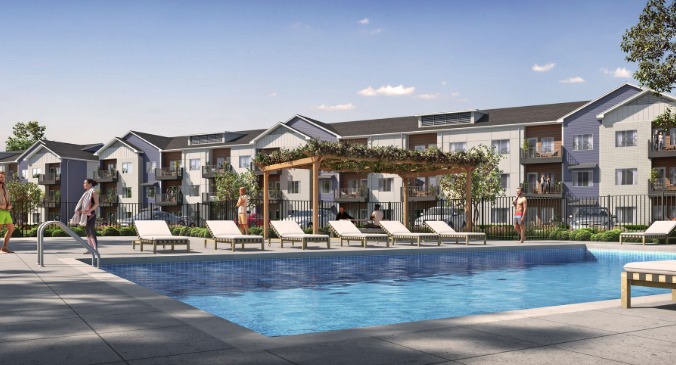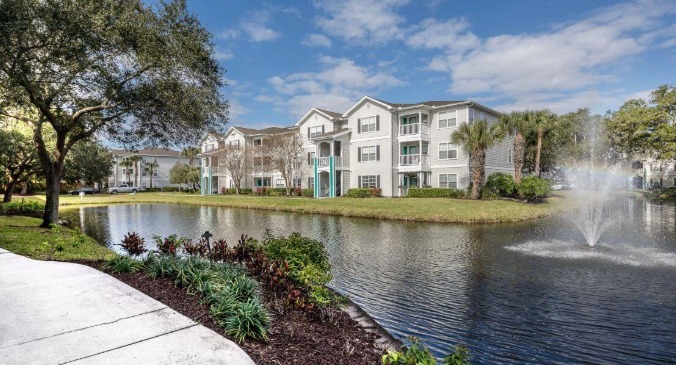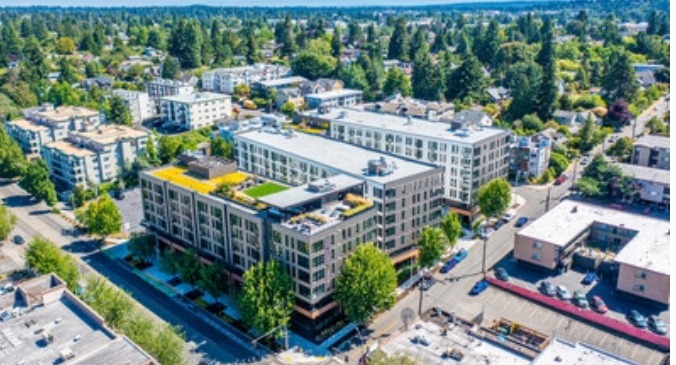Yield PRO TV presents NAHB Power Hitters. Host Linda Hoffman talks with Gregory Peek, President of ERGS, Inc.
Transcript: NAHB Power Hitters interview. Linda Hoffman with Gregory Peek, recorded September 30, 2021
(music)
Linda Hoffman: Today I want to tell you a story.
Storytelling is core to human existence. We’ve told stories from the beginning of time. From cave drawings to hieroglyphics in Egyptian tombs. Lawyers tell a story to the jury. Entrepreneurs tell a story to their investors. Stories convey purpose. Stories describe intent. Mostly, they deliver a message.
Even our lives are stories. When asked, how was our day?—out comes another story. We trade stories regularly. It’s what humans do.
Here’s the important part. We are influenced by stories. As with all story tellers, those in the business of content creation understand that in telling the story, they are controlling the message. You could also say, controlling the narrative.
In California, for example, popular culture tells not-so-favorable stories about business owners, landlords, and the laws that bind society. We can’t change those stories, but we know better. They say that he who controls the narrative wins—I’m thinking… not. The stories of business owners, landlords and other risk takers are ones of advancing the material well-being of the community and the nation. These stories will endure because they are true.
And that’s my story. But here’s an even better one. Today’s guest. Now there’s a story. A family-owned business since 1959. Developer, manager, a real mover and shaker here in Northern Nevada. But that’s only the beginning.
Gregory Peek holds multiple degrees, including that of juris doctor… Greg worked for a time as a Congressional staffer in D.C. but came back to the beautiful state of Nevada to run the family business, ERGS Properties, along with his father, George.
Greg, welcome to the show.
Greg Peek: Thank you. It’s nice to be with you.
Linda Hoffman: Greg, this story is all yours. Give us the highlights. What is ERGS?
Greg Peek: Well, ERGS is a family business, and I’m luck and honored to be a part of it. It was started by my grandfather in 1959. ERGS is actually an acronym, E-R-G-S. And the family business stands for my grandmother, Esther, and my uncle and my dad and his brothers: Esther, Ronnie, George and Stephen. George being my father. ERGS is actually a unit of work, like a calorie or a watt. So, my grandfather called it ERGS thinking it was very clever. I like it. We call it ERGS Properties because we’ve become land developers, and multifamily builders.
Linda Hoffman: ERGS mostly owns mid-market apartments. Providing unsubsidized housing that is affordable to working-class seems a mystery to smart people all over the country. What is your formula?
Greg Peek: You know, that’s a very interesting question and we get asked that quite a bit. People view apartments, today, in one of two way, two buckets: The high-end apartments that have all the amenities, the pools, the parks, the barbecues, parking covered parking, garages, just real high-end stuff, versus subsidized housing, and Section 42 and Section 8.
There is a missing middle and that’s where we come in. We pride ourselves in having a pretty wide spectrum of housing, everything from the very basic two-bedroom, one-bath, no-frills, very few amenities entry level apartment—to a nice two-bedroom, two-bathroom, master suites-type apartments. We build eight-plexes and we have large common areas and they’re all places that we take pride in where a person, a couple, can raise their family. We have a lot of families that live with us. People need housing, that’s where we come in.
Not everybody should be a homeowner, and frankly, not everybody should be a renter. But those who do not own homes, or account for homes, we’re their home. And we pride ourselves in that.
Linda Hoffman: Your properties are a mix, some old, some new. How do you decide what value-adds will make older units competitive and affordable?
Greg Peek: Well, again, getting back to our entry-level apartment, it is no-frills. And there is just a marketplace for that. It’s funny. Our basic entry-level apartments—they are always full, always full. People need that type of housing. We’re talking hourly employees, blue-collar workers, that are generally two people working in the household, and, maybe, their household income is $75—80,000, tops, for both of them. And they’re also raising kids.
So, we maintain those at a very high level, and, again, they are always full.
Linda Hoffman: So, Greg, how are you able to build for moderate rents and still pencil?
Greg Peek: You know, I think that we’re very lucky. I’m grateful that we are. I was born in Reno. My dad and his family moved here in the 40s. So, we’re part of this community. We take a long-term view. So, we’re not in it for an ROI in five years, or even 10 years. We just take a long-term view. We want people… we have a great staff who believe that Reno is our home. And so, we put a stake in the ground, and say this is our community, and we’re a part of the community. That helps us get over the near-term requirements that a lot of investors look for.
If our return on investment is over a 30-year horizon versus a 10-year horizon, we find that we’re able to make things pencil a lot better. Especially in today’s very, shall we say, fluid environment when it comes to labor and materials.
Linda Hoffman: Up until recently your portfolio was all Reno. That was then. Your newest property coming online is in Fernley, Nevada. Is this the sign of things to come?
Greg Peek: We believe so. Reno’s been a great place for us and for our family, but it’s time to grow. Reno has really started bumping up against its maximum, its maximum density. If you look at Reno, there’s not a whole lot of land left. I know that’s really weird to hear, for people who don’t understand the West. But we’re starting to run out of land because the rest of the state this federally-owned, so it’s just not available for development.
And so we’ve started looking outside of the Truckee Meadows, outside of the Reno area and Fernley is that place. It’s become a very, very active market because of new development that is out, industry that is coming.
Linda Hoffman: Speaking of industry coming… Tesla dropped its Gigafactory in your backyard. This brought 7,700 jobs to a metro area of less than 500,000 people. How big an impact has this been on your business?
Greg Peek: It’s been huge on my business. It’s been huge on the entire community. It’s changed our community. Nevada has always survived on gaming, cattle ranching and mining. Those were the three big ones forever. Tesla’s arrival has changed our economy here in Reno to more of a tech business. Auto tech—Tesla is technically a car company—it is also a technology company.
And we’ve also brought in Apple. We’ve brought in Amazon. We’ve brought in Google, and it’s all part of the Tahoe-Reno Industrial Center. We call TRIC. And it’s just East of Reno on Interstate 80 and Fernley is just on the other side of that. And, so, what we’re doing and what we believe is going to happen—people are going up what’s called USA Parkway and they’re going to hit interstate 80. And they can make a choice—turn left back to Reno, or they can turn right back to Fernley.
And Fernley’s starting to grow, and we’re seeing it. And they’ve been a very welcoming community to us.
Linda Hoffman: You own property just down the road from the Gigafactory in Silver Springs. Is now the time to develop that land?
Greg Peek: I’d like to think so, but I think were still a little far off. There still some development constraints down there that we’re working through. We have water constraints. Water—we’re in the West, ok. Whiskey’s for drinking, water for fighting. And we still have water constraints, but those are being worked through. But there’s also political will that needs to develop down in that part of the world. They’re just not quite ready for the growth. They don’t demand the growth. They don’t want the growth. We’ll get there. It’s a natural evolution, but we’re probably still 10 to 20 years off.
Linda Hoffman: You frequently testify and write opinion pieces regarding proposed housing laws in Nevada. Legislative changes often circulate before they are either passed or killed. What’s percolating in Nevada?
Greg Peek: Well, I’d love to tell you it’s all good things for us, but we are threatened by things such as rent control, inclusionary zoning, which are both going to do nothing more than continue to drive up the cost of housing. We have a lot of energy codes that are really being implemented that don’t make a lot of sense for our area. And we do take a lot of time and a lot of pride in trying to educate our decision-makers. Whether it’s the bureaucracy, and the staff of the bureaucracy. Or it’s our elected officials, both on the local, state and also national level. We’ve spent a lot of time doing that.
All I can do is be the messenger. We believe, I believe strongly in the supply side of things. If we were able to increase our supply of housing, that would take care of our very, very high housing prices right now.
Linda Hoffman: Right. Free market.
Greg Peek: Free market. You bet.
Linda Hoffman: A law degree from a very prestigious school if I do say so myself, and an MBA. How have these been helpful in running ERGS?
Greg Peek: They’ve been invaluable, honestly. I think that having a law degree and MBA is a great combination. I have been very fortunate I’ve been able to do that. I went to law school when I was in D.C. I actually went to law school at night while working on Capitol Hill. And my Capitol Hill experience of working for a couple members of Congress from the West was invaluable. It taught me a number of things.
First and foremost, that our laws reflect our values. Our regulations are derived from our laws. And our regulations, theoretically, reflect our values. So, it really makes, it helps me understand and gives me the drive to try and educate our elected officials. Because honestly, because if they value what we value, then hopefully the right regulations and laws will follow.
Secondly, having worked in Washington, I learned that the bureaucracy and elected officials are human beings. They’re not deities. And they get up every morning just like we do, and they’re people, and they have their views of the world and they’re not infallible, and they’re also all trying to do what they believe is right thing. So, the most important thing is just to have a dialogue. That’s the most important thing.
We don’t get agreement. We don’t get agreement all the time. But just having the opportunity to have the discussions is the most important thing. That’s probably the most important from my law degree and the Washington experience.
My MBA just simply help me with my finance. I didn’t get my MBA until I left Washing and came back to Reno and joined the family business. And I realized very, very quickly that I knew how a law becomes a law. I knew policy pretty well, but I needed to have some more financial underpinnings if I was going to really take our company to the next level and I’m so thankful that I did. I got the MBA from the University of Nevada, which is a great program.
It’s just, I’m just grateful to be able to do what I’ve been able to do. And I make no illusions that I had the opportunities, you know, by way of my family. There’s no question about that. But, my role as somebody, as part of this family, is willing to take it to the next level and that’s what I’m trying to do.
I also think it’s important to be a part of the community. I have a canned pitch that I give about housing generally. When somebody buys a home, when somebody moves their family to a home, they putting a stake in the ground that says, this is my home. We want those people.
We believe those people become the Boy Scout leaders, and the Girl Scout leaders, and they coach soccer teams, and baseball teams, and softball teams. And that’s important. That’s what makes community. We always talk about communities, and although we’re building apartments, and we have renters. I talk with my staff all the time about how we don’t have apartments, we have communities. And these aren’t apartments, these are homes. We don’t have tenants, we have residents. And it’s very important that we keep that concept going. These are people’s homes, and it’s very, very important that we lead with that, and, hopefully, spread that message.
Linda Hoffman: Well, Greg, thank you for sharing your story. This has been fascinating.
Greg Peek: Thank you, Linda. It’s been an honor and I appreciate it and have a great day.
Linda Hoffman: You too.
These are the true stories of America. What make us great. What makes us strong. They don’t have to be spun or angled. Just good old American ingenuity, hard work and in this case—real family values. Now that’s a story to remember.
Thanks for joining us. I hope you enjoyed our show. I’m Linda Hoffman. See you on our next exciting episode of NAHB power hitters.
(music, credits)












